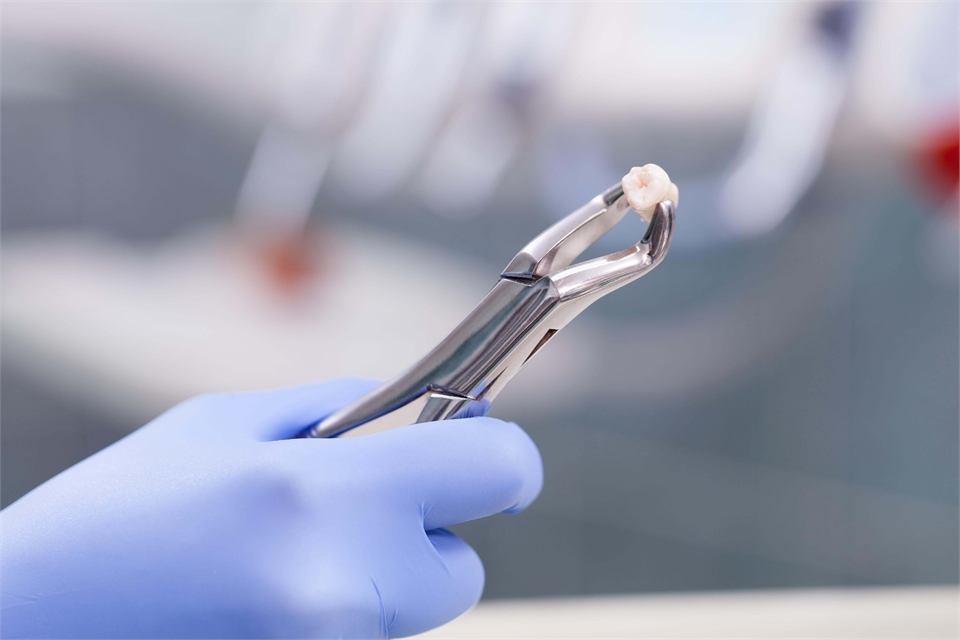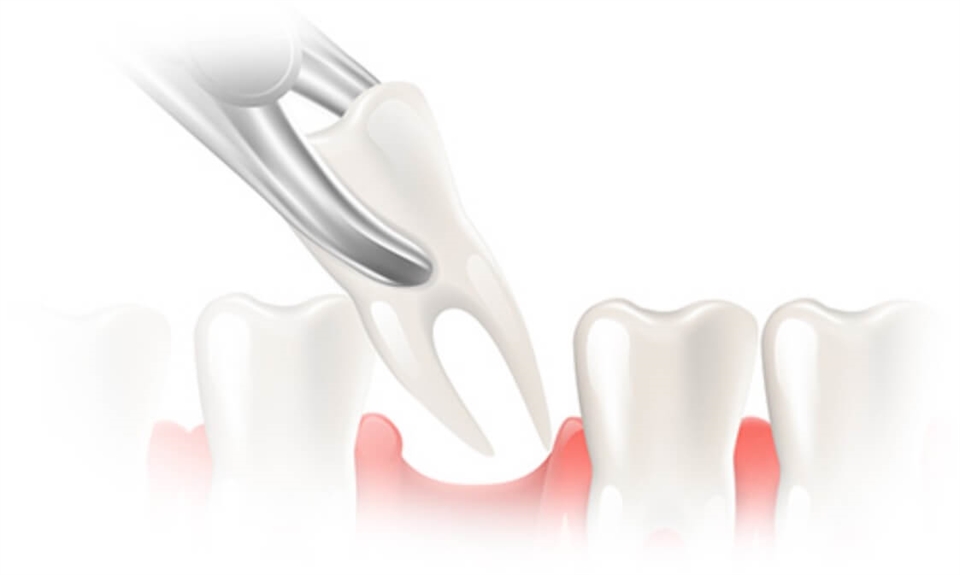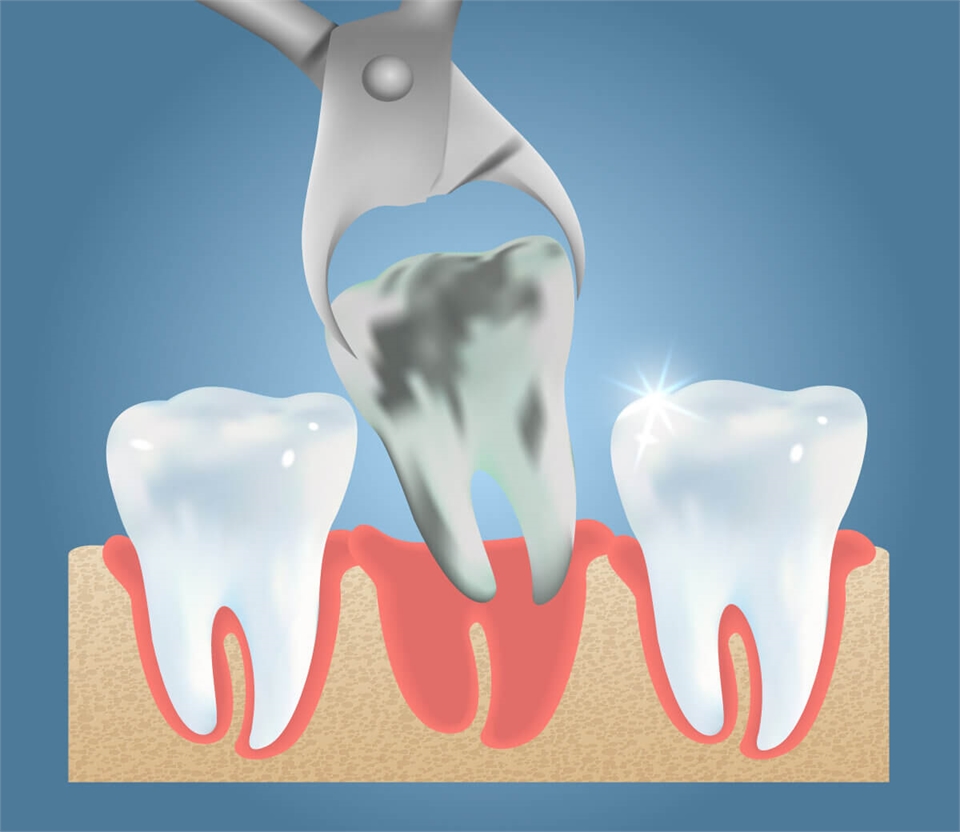Oral surgeon for emergency tooth extraction in London
Emergency dental extractions in London delivered by a oral surgeon specialist

Dental professionals and oral surgeons do all they can to help patients retain as much natural tooth structure as possible, as recommended by the National Institute for Health and Clinical Excellence (NICE). Tooth extractions, where an oral surgeon removes the entire tooth from the socket, are often reserved for when a damaged or infected tooth cannot be repaired by more conservative treatments. Here is important information to know when seeking an oral surgeon for emergency tooth extraction in London.
When is tooth extraction needed?
Tooth extraction may be carried out for several reasons. One of the most common procedures is the removal of impacted or unhealthy wisdom teeth. Another common reason for extraction is if serious gum disease or severe decay has caused extensive damage to a tooth or the underlying tissues. If a root canal treatment and restoration are not effective or becomes re-infected, the dentist may remove the tooth to eliminate the source of infection so it does not continue to spread. Trauma to the jaw could also cause root fractures or cracks that result in the need for extraction. Or an oral surgeon might perform an extraction if a tooth is broken beyond repair and unsuitable for any other dental restoration. And lastly, a patient may choose tooth extraction for orthodontic or cosmetic purposes.
Symptoms to watch for
A number of symptoms could indicate the need for tooth extraction including:
• Extreme dental pressure or pain while chewing
• Severe sensitivity to hot or cold temperatures
• Dark dental discoloration
• Swelling that makes opening the mouth difficult
• Accumulation of white fluid or puss
• A chronic bad taste in the mouth
• Loose or unstable teeth
Tooth extraction process
Before any work is done, the dental professional will take an x-ray of the problematic tooth and surrounding area to determine the extent of the damage. If extraction is deemed necessary, they will also use the x-ray to determine how to remove the tooth most efficiently. Most extractions are fairly straight forward and easy to perform. But the extent of decay, the length of the tooth root, the density of the bone, and the severity of the fracture could increase the difficulty of extraction. In these cases, the removal of the tooth might require more advanced skills and techniques of an oral or maxillofacial surgeon.
Once the best course of action is decided upon, an oral surgeon or another experienced extraction specialist will inject the appropriate area with local anesthesia. This will keep the patient comfortable and pain-free throughout the treatment. As soon as the area is profoundly numb the dental specialist will widen the tooth socket with an instrument called an elevator. They use it to push between the tooth and surrounding bone to make removal easier. Once the elevator has done its job the surgeon will use forceps to rock the tooth back and forth until it is loose enough to remove. Because there is often more pushing than actual pulling involved in tooth extraction, patients may feel slight pressure during the treatment. But the procedure should not hurt. If there is any type of sharp pain, the patient should let the surgeon know immediately.
The more challenging extractions should be performed by an oral or maxillofacial surgeon who has the training to administer intravenous sedation or general anesthesia. During these more challenging extractions, it is of the utmost importance to keep the patient calm and comfortable. For example, there may not be enough tooth structure for the surgeon to push with the elevator or grasp with the forceps. Here the oral surgeon will need to push back the gums and remove the tooth and some surrounding bone using a drill. Or for teeth with roots growing in different directions, the oral surgeon may need to section the tooth into pieces to be able to remove it.
What to expect after an Emergency tooth extraction
After a tooth is extracted the patient may experience bleeding gums, some swelling, and a little soreness. These symptoms are normal and should taper off in a couple of days. But if symptoms do not abate or worsen after 24 hours the patient should call the dentist. The oral surgeon may recommend using tightly rolled gauze to help control bleeding and over-the-counter pain medication for the first couple of days. The full healing period takes about one full week. Patients can aid recovery by applying a cold compress to the outside of the mouth, avoiding hard or chewy foods, and not drinking from a straw for a few days.
What if a damaged tooth is not extracted?
An untreated tooth that is infected or fractured will not heal on its own. In fact, the condition will likely worsen without proper dental treatment. The first thing to consider is the pain. Without treatment, patients can expect prolonged pain and discomfort. Ignoring the problem can also lead to infection, periodontal disease, bone loss, and damage to the remaining teeth. It can also cause sepsis, a possibly life-threatening condition if an infection is left to enter the bloodstream through the tooth pulp and trigger other reactions in the body.
What is an alternative to tooth extraction?
Dentists and oral surgeons prioritize treatments that will allow patients to retain as much of their natural tooth structure as possible. This is why tooth extraction is often reserved as a last resort. The leading alternative treatment to extraction is root canal therapy, but if the infection is too severe or the tooth damaged beyond repair, the only remaining option is emergency tooth extraction.
If you suspect you need an emergency tooth extraction in London you should seek help from an oral surgeon as soon as possible. Our team is ready to provide emergency care 24/7. When you contact our clinic, specialist oral surgeons will get involved in diagnosing and treatment if a tooth needs to be extracted. The clinic is easy to access in central London and patients can book appointments for same day treatment.
1 Copper Row, London Bridge
London, SE1 2LH
England
United Kingdom
OPEN 24 HOURS A DAY,
7 days a week, 365 days



